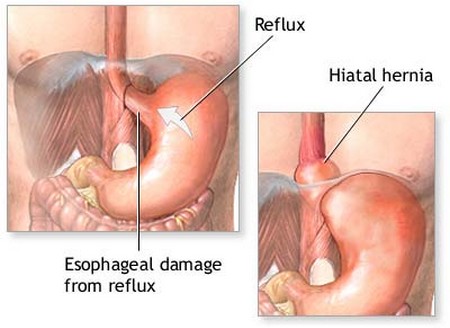After eating a heavy, satisfying meal, all you want to do is lie down and take it easy. “Resting helps digestion,” your grandmother used to say, but lying down after a meal causes painful burning in your chest. To relieve the discomfort, you’ll probably reach for an antacid. Antacids provide quick, temporary relief. They neutralize the stomach acid that can splash back into your esophagus and set your chest on fire.
Liquid antacids tend to work better than tablets. Keep your liquid in the refrigerator. A cold antacid tastes better, which makes it easier to swallow. Antacids don’t do any good if you take them with meals, so take them after meals or just before bedtime.

Choosing an antacid can be confusing. Consider the following types:
- Sodium bicarbonates. These are the kind that go plop plop, fizz fizz (or just fizz fizz). Plain old baking soda is sodium bicarbonate, and so is Alka Seltzer. They act very quickly and are not expensive, but because they contain lots of sodium, they can be harmful if you use them too often. If you are on a low-salt diet, or if you have high blood pressure, don’t use this kind of antacid.
- Calcium carbonates. These include the candy-flavored antacids like Turns and Rolaids. They also work well for most people, but they contain a lot of calcium, which can actually cause you to produce more acid. If used too often, they may cause kidney stones.
- Magnesium and aluminum. These may be the safest kind to use over a long period of time. Magnesium alone can cause diarrhea, so most products combine magnesium and aluminum. These include brands like Maalox, Gaviscon, and Mylanta. Although these don’t contain too much calcium or sodium, they still shouldn’t be used if you have severe kidney disease.